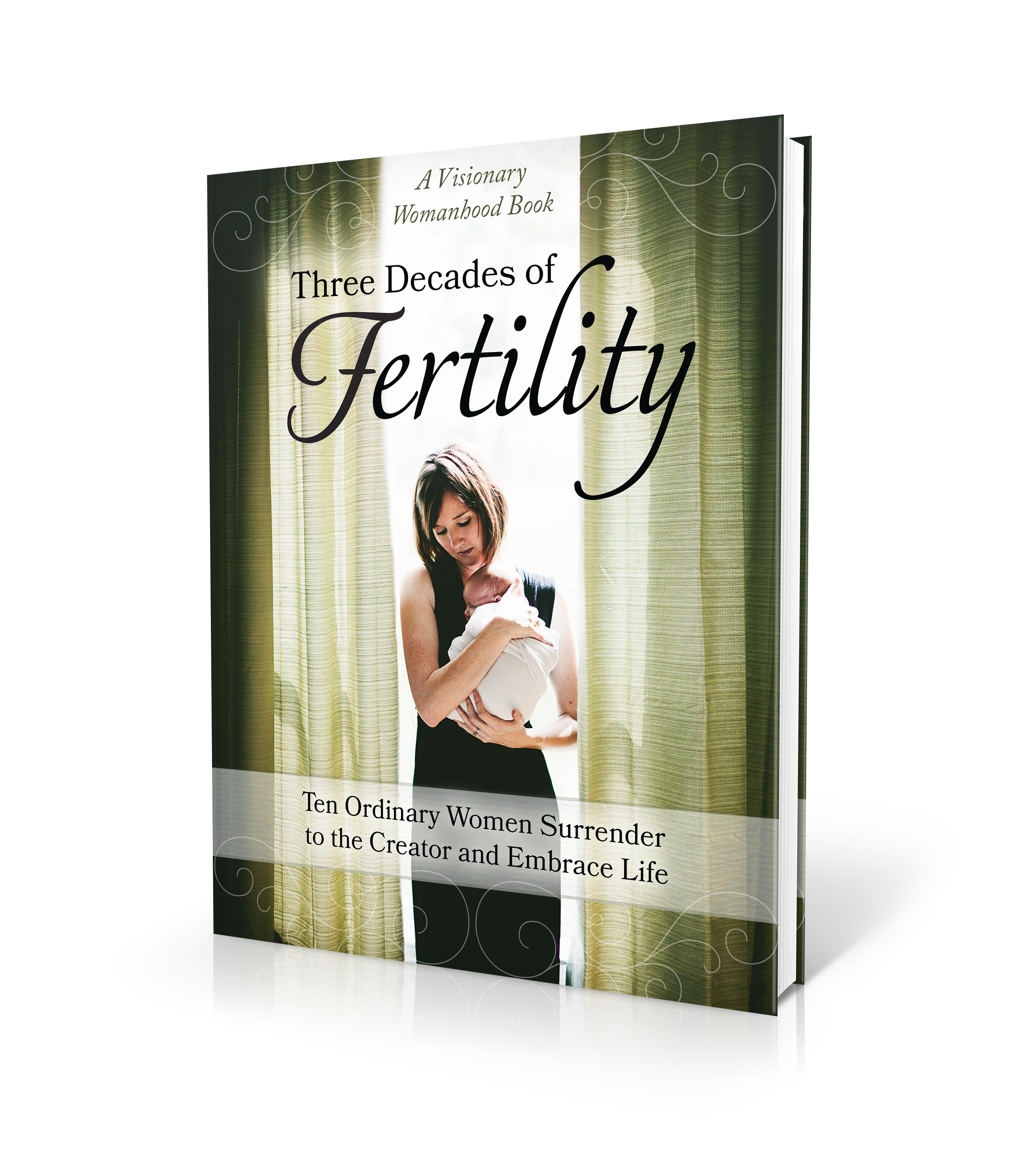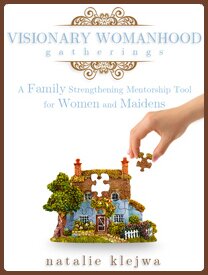The Power of the Bride
By Contributing Writer, Carmon Friedrich
The Bride of Christ, the Church, is the context in which God intends for us to give the Gospel to the world and to thereby transform the world. Sadly, though, Christians often despise the Bride that is beloved of God, and refuse to be part of His magnificent plan for shining His glory in a dark place.
We need to embrace the Church and gladly join in the worship of our holy God with other believers, living life together with them to demonstrate His transforming power. God lives in relationship in the Trinity and with His Church. We were created to live in relationship with Him in the midst of the Church.
Dissension in the Ranks
We had been invited to a friend’s home to show the wonderful movie Divided to a group of their friends. Randy Winton came along to help with the discussion time after – the film explores why age-segregated programs are not the best way to minister to children in the church and Randy had been a youth pastor for 15 years, something he jokingly says he has “repented” of.
The movie was well-received by the group which consisted of homeschooling families who were supportive of family-integrated church. The problems came with our discussion time. My husband Steve and Randy, while gladly promoting the importance of families worshiping together, also stressed the importance of loving your church and not turning your back on the Bride of Christ when you don’t get your way.
This admonition made some people squirm.
The reason they were uncomfortable was they had been burned by someone at some point in a church. Maybe they had experienced trials in several churches. But they had decided that as for them and their families, they would not darken the door of another church building. Instead, they met informally (and for some, inconsistently) with other families in home churches.
Their hardened attitude about church made me sorrowful for the Church which needs faithful families to build her up and minister corporately through the means of grace God has given only to the Church. I also felt sorry for those families who are missing out on the many blessings found only in a commitment to a local church. I know firsthand how precious those blessings are.
I love our church.
No Lone Rangers
There are many reasons Christians leave or even refuse to join with a local body of believers. Some reasons for leaving are legitimate, but there is no biblical reason for refusing to be under the authority of any local church. The church is not a man-made institution, and it is not an optional commitment for a Christian. If we are going to be obedient and effective disciples of our Lord Jesus Christ, we must be committed to a local church. There is no such thing as a Lone Ranger Christian.
In his article “Church Membership and Choosing a Church,” Brian Schwertley addresses the reasons why people who claim to be part of the invisible church won’t identify with a particular visible church, and he makes a compelling biblical argument for being under the auspices of a physical church with duly-ordained elders.
Objections and concerns about tyrannical authority, disagreements with non-essentials, personal objections to formal commitments, and more are dealt with in Rev. Schwertley’s article. Let me give some personal examples of how our family has discovered the blessings of being rooted to a local congregation.
Our family has many distinctives that are important to us and that we desire to pass on to our children, but we have never been in a church where the official position of the church, either in its statement of faith or the by-laws, lined up exactly with our views. In my many years of blogging and through numerous personal friendships, while I have had readers and friends who are kindred spirits, I have yet to meet a single person, online or in person, who lines up exactly with my views – and I bet that’s true of you, too!
And that’s a good thing, as my views have occasionally changed, or at least gone through some necessary refining. If I had the expectation that I could only be in a church which agreed with me on everything, then we would still be searching for the “perfect” church.
We were members for many years of a reformed church, and being reformed is one of our distinctives though the “flavor” of the church was not always the taste we preferred. But it was a good church that preached God’s Word faithfully, practiced church discipline properly, and the worship was reverent.
We felt comfortable there, but we realized over time that distance – we were traveling an hour each way on Sundays – kept us from being able to be involved in the church’s life and in the life of the people there. So, with our pastor’s blessing, we made a change, joining a local congregation where we sometimes felt like fish out of water.
Our new church also agreed with some of our distinctives, in that there were families who homeschooled and who wanted their children included in the worship service. They also warmly welcomed us, and the fellowship there was often sweet in that small group of believers. But it was not reformed, and though we did not have expectations that the church would conform to our doctrinal positions, we were sometimes viewed with suspicion by those who didn’t like our differences.
At one point, we considered leaving as we did not want to be the cause of dissension, particularly when the congregation was planning to hire a pastor and we did not agree with their choice. We decided to stay, however, making a firm commitment as a family to put down roots and be God’s servants in that place. The joke was on us, and we were given a much-needed lesson in humility, as we grew to love the pastor and his family dearly, and they have become our close friends.
Because this is the church we love, I won’t go into specific conflicts or disagreements there, except to say that we are grateful that we haven’t always gotten our way and that we have sometimes had to swallow our words and our pride in order to be loving, kind, and to foster unity. I’m sure others have had to do the same for our sake!
Shelter, Service, and Society
I would like to highlight three ways the local church is a crucial component of the believer’s life, with a special emphasis on how it benefits women and families to be in the safe shelter of a church. Women have a tremendous influence in the church, for good or bad. I have seen discontented women ruin the peace of both home and church through taking offense or being discontented.
Like a good sermon, I’ll use alliteration to help you have a memory hook to remember these items, though I do not approve of women preachers, and that’s one distinctive from which I won’t budge!
Shelter
When a church has properly appointed elders with authority to practice biblical discipline for offenses, families are protected from many dangers, and women and children should feel safer for that oversight. Not only are they sheltered from false doctrine, but they have someone to appeal to if there is any problem of abuse in their own family.
I know of several situations where husbands who appeared to outsiders to be godly men had disconnected their families from the oversight of a church in order to avoid the accountability it would require. Their wives had nobody with any authority to go to for help when they were in that terrible situation. (For a very helpful sermon series on this real problem, click here.)
The counseling and oversight of a proper church is crucial for the health of families, and women need elders (and godly older women to give them wise counsel) who will be watching out for the well-being of the flock.
Women who like to read and study and who have opinions sometimes get impatient with both husbands and elders who seem to be plodding rather than addressing the issues and concerns they deem important. Be grateful for elders who are deliberate and steady and not too quick to make changes that you want them to make, even if you think you are right (and who doesn’t think she is right?) Pray that those in authority would do what’s right and please God with their decisions, and be willing to trust those who are entrusted with your care as they have the weighty responsibility of leading the church (I Peter 5:3).
Service
Part of growing into maturity in our faith is learning to be servants, and not expecting others to serve us. Yet how often do we hear complaints about church such as “I didn’t get anything out of the service” or “I don’t feel comfortable there”? When I hear that kind of whining, which boils down to someone not getting her way, I’m tempted to say with Bob Newhart: “Stop it!”
If I was getting that kind of complaining from my own children I probably would, but I would also remind them of Luke 9:23-24: “If anyone would come after me, let him deny himself and take up his cross daily and follow me. For whoever would save his life will lose it, but whoever loses his life for my sake will save it.”
Years ago we read an article which addressed the problem of people complaining about their churches. We’ve never forgotten the advice given: stop complaining and start serving. Begin by doing the dirtiest jobs. Clean the bathrooms. Smile while you do it. Be known for your willingness to help others.
Eventually, people who are blessed by your humble service will want to hear your humble views about other things. That doesn’t mean you now get a pass to complain! It means you have earned the right to speak when asked, but don’t forget that actions speak louder than words, so teach through example and strive for peace.
Yes, truth married to love is essential, but make sure you are going through the proper chain of authority if there is an important issue to broach, rather than trying the back-door approach of gossip or fomenting discontent. Women have tremendous power to be divisive or to be peacemakers. Churches have split over silly women who are “going about from house to house, and not only idlers, but also gossips and busybodies, saying what they should not” (I Timothy 5:13).
Brian Schwertley expresses the importance of the unity of the Body of Christ as a witness to the watching world:
Division and disunity in the body of Christ are the results of autonomy in doctrine (which leads to various heresies) and autonomy in behavior (sinful deeds). Paul’s teaching on the organic nature of the body of Christ strongly condemns the sinful, spiritual individualism that is so popular today.
Many people do not want to be under a spiritual authority and they do not want any spiritual responsibilities toward others. Thus, they designate themselves the sole authority in ecclesiastical matters and develop a hyper-personalistic version of the church. For them the church is not a body with cooperating parts that function together for the good of the whole. Rather it is viewed as a bunch of isolated atoms that bump into one another once in a while.
Jesus, however, spoke of the communion of saints in a manner that proved that the church was a discernable community known by its acts of love for each other. He said, “A new commandment I give to you, that you love one another; as I have loved you, that you also love one another. By this all will know that you are My disciples, if you have love for one another” (Jn. 13:34-35).
Society
We were made by God to be in relationship with others. The original, foundational relationship He gave us, besides our relationship to Him, is marriage. And fruitfulness in marriage results in the blessing of children.
My husband the programmer once explained factorial relationships to me: Two people have a factorial relationship of 1: 1×1=1. Three people have a factorial relationship of 1×2×3=6, six possible combinations in which they can all relate. We have (before sons- and daughter-in-law) 1×2×3×4×5×6×7×8×9×10×11=39,916,800 possible combinations of relationships within our household. No wonder mothers of many children can sometimes get a bit stressed.
But translate that to the number of relationships even in a small church. Information overload! Is it any wonder we get on each other’s nerves sometimes? With a family, you have to work things out, but too often in a church, we get miffed and turn tail and run away, rather than working through problems.
Since the Church is the Bride of Christ, some have compared the covenant of membership to the covenant of marriage, and adjured Christians to take that covenant seriously. That comparison can’t be carried too far, but the point is valid that we ought to not take our commitment lightly.
It’s hard to love people you aren’t with. Fellowship means more than sitting with strangers in a pew once a week. It means helping people when they are sick, it means praying for each other’s needs (which means finding out what they need), it means rejoicing over babies and mourning over losses.
The early church also shared meals together. Our little church years ago decided that after each Lord’s Day service, we would have a fellowship meal, and it was an inspired idea! It took some time for people to get the hang of thinking ahead and preparing food to bring to share, but now most people stay and eat together and visit well into the afternoon. It is one reason Sunday is our family’s favorite day of the week.
We are about to celebrate the wedding of our third and last daughter to be married in our church. As with the first two weddings, everyone at our church is joining in to help us with the work of pulling off this important event. It is very precious to us that our children are being married in the place that means so much to our family, where we have fellowship with some of the people dearest to us, where we worship God together week after week.
The significance of the wedding ceremony as our daughters dress in white and walk up the aisle to meet their grooms helps us see the reality of the lovely Bride that Christ intends His Church to be. What a privilege we have to join with other believers in unity and love, what a beautiful picture it presents to those who long for that kind of intimacy. It can change the world.
I love our church.
I love The Church.
Further resources:
The National Center for Family Integrated Churches has several sermons on its site regarding the importance of the Church.
P.S. Our church is now reformed, and I love it just the same.
Tags: Church, fellowship, relationships


























This was a wonderful article. I have had a tendency to pull back from church at time. What a conviction I have after reading your post. When the church fills its roll it is a beautiful thing. Thank you for this great blog post. Encouraging and convicting at the same time.
This is godly, sound, wise advice. If we do not love God’s people, we should fear for ourselves. Thanks for this call in a day where the church is not esteemed.
This article stirs up so many emotions. It is hard to know what to say. You are extremely blessed to find a church that fits your 3 main criteria of faithful teaching, church discipline and reverent worship. This one quote hurts so much “Fellowship means more than sitting with strangers in a pew once a week” I have never ever had that except when I was a child and played with the other kids. I think I could put up with quite a lot of yuck to have that. Our area is an awful mix of ultra-liberal, hyper-legalistic and lukewarmness. I originaly stopped going to church for the wrong reasons, then I had a very long chronic illness that made getting out of the house extremely difficult. Now that I am past my bad ideas that kept me out and mostly recovered my health I still find it hard to waste my time on Sunday morning. Yes it must sound horrible to someone so comitted to church to see “waste of time” in the same sentence. I will ask my husband to persue the links you provided with me. I just hate the idea of having to pick a church based on how little will it harm our childrens walk and knowledge of God. We don’t plan of leaving all the teachings to our church but children are susceptible to bad theology, as my own past has shown, even when parents try to teach the truth at home.
This is superbly and thoroughly written and communicated. Thank you so much, Carmon!
This really is a good post, Carmon. Really good. Thank you!
Carmon, This article thoroughly stirred my emotions and left me chewing on it all day yesterday. I really don’t know where to begin in a comment. A hearty “amen” for sure. You touched on so many issues that our family has walked through as well.